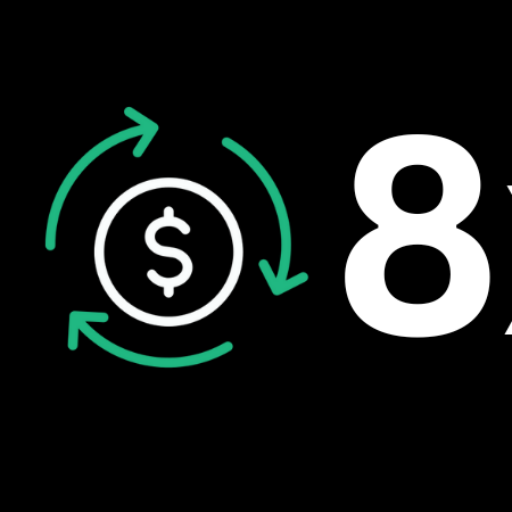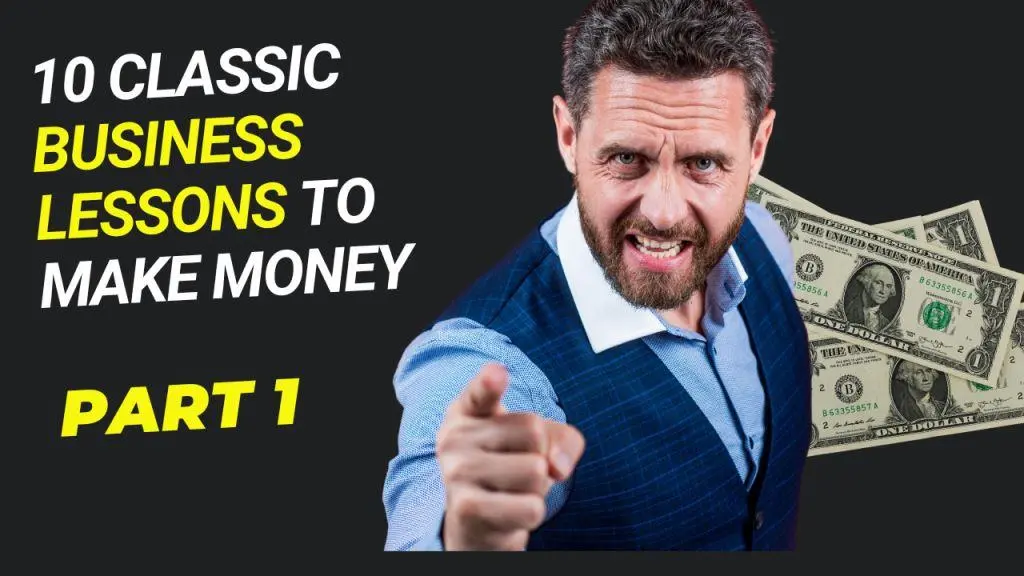Hey there,
Do you want to succeed in business? Sure you do! But do you know that success doesn’t just come naturally? It comes from failures, from stumbling blocks in life. Each failure is a valuable lesson that helps you move further along the path of chasing your dreams.
Join me in the community of those who love the 8x Invest mindset channel to explore “10 classic lessons to help you succeed in business”.
The first lesson is called “The Ice Cream Theory”. Do you like ice cream? Which season do you like eating ice cream the most? Most people would choose summer because the scorching weather makes them crave ice cream more. But did you know that successful entrepreneurs think differently? They believe that if you want to sell ice cream successfully, you should start in winter.
Why is that? Winter has fewer customers, forcing you to cut costs and improve services to compete. If you can survive and thrive in winter, you won’t fear any competitors in summer.
Remember, only through hardships do you truly appreciate success. The “Ice Cream Theory” of entrepreneur Quang Nhung Trinh is evidence of that.
Are you ready for the journey to conquer success with 8x Invest? Register for the channel, turn on notifications so you don’t miss any valuable business lessons!
Number 2: Selling combs to monks. A business lesson as clear as distilled water.
You might think selling combs to monks is an easy task? Oh dear, you couldn’t be more wrong! Monks don’t have hair to use combs, so how could you possibly sell to them? Yet, in a recruitment contest for “super sales superheroes” by a certain company, there were three outstanding candidates who successfully completed this seemingly “impossible” task.
The first guy, with a “grinding stone” spirit, like “water eroding rock,” persistently pitched to each monk. Despite being scolded and driven away, he gritted his teeth and persisted, finally persuading a compassionate monk to buy a comb.
The second guy played a different trick. After careful observation, he noticed that the mountain wind tousled the hair and ears of the devotees, making them lack reverence when offering incense. He then “revealed” to the abbot the idea of “giving combs to devotees to tidy up before the Buddha ceremony.” Sensible enough, the abbot nodded in agreement to buy 10 combs for 10 meditation halls in the temple.
And what about the third guy? He went big by targeting the largest temple in the area. With finesse and cleverness, he subtly “flattered” the head abbot that such a big temple should have gifts for the devotees to encourage them to do good deeds. He proposed the idea of a “merit-gathering comb” written by the monk himself. Indeed, the temple authorities were “pleased” and immediately purchased 100 combs.
As a result, the first guy was praised for his diligence and perseverance. The second guy scored points for his ability to observe, deduce, and dare to think and act. However, the top spot belonged to the third guy with his meticulously researched strategy, understanding of crowd psychology, along with presenting unique ideas and specific solutions, opening up a new market for the product.
The story of “selling combs to monks,” though simple, contains a profound business lesson: To succeed, there needs to be a harmonious combination of perseverance, creativity, and market insight. Always remember this to conquer every challenge in the tough “business battlefield,” my friend!
The 10 Secrets to Making Money Like a Jew
Business Lesson 3: Is the Secret to Success in First Class?
Have you ever set foot on the massive aircraft of Vietnam Airlines, gliding through various cabins, from the bustling economy class to the luxurious business class, and finally to the prestigious first-class cabin? Take a moment to observe passengers aged 30-40, and you’ll notice something intriguing:
First Class: Where books are cherished, the sound of crisp pages resonates with the melody of knowledge.
Business Class: Magazines and laptops dominate, the click-clack of keyboards blending with gentle taps on screens, where dynamic individuals are engrossed in their work.
Economy Class: Livelier atmosphere with laughter, movie soundtracks, cheers in electronic games, and colorful pages of swiftly flipped newspapers.
In the VIP lounge, it’s a sight of book enthusiasts everywhere, contrasting with the economy lounge where phone ringtones echo, fingers swipe Facebook eagerly, gaming noises fill the air, and endless gossip prevails.
What lies behind this difference?
Action or position, which is the cause, and which is the effect? The answer is obvious: action leads to position, not the other way around.
Look at successful businesspeople, and you’ll find they share a habit: reading. They’re passionate about knowledge, continuously learning and improving themselves.
Believe me, those watching this video, start the habit of reading today. Who knows, one day soon, you’ll spread your wings in the first-class cabin, accompanied by the guiding light of knowledge towards success.
Turn your actions into the key unlocking the door to your success!
Article 4: Two Men and the Valuable Business Lesson.
Every drop of sweat traded for a meal, lamenting the unfair fate:
John, a hardworking man of humble means, toils day in and day out, digging coal from the earth. Sweat pouring, strength waning, yet his income barely enough to make ends meet, his family’s meal never truly satisfying. Crestfallen, John pleads to the Buddha: “Oh Buddha, why is my fate so grim, toiling hard yet still impoverished? While the wealthy revel in leisure?” The Buddha smiles, asking in return: “So, what do you think would be fair?” John, incensed, retorts: “Turn a wealthy man into poverty like mine. If after a month, he remains rich, then I will accept my fate!” The Buddha nods, turning a wealthy man named William into destitution, accompanying John to two coal-filled mountains.
Same starting point, different paths:
John, accustomed to labor, eagerly digs coal. In no time, he fills a cart with coal, selling it to buy food for his family. William, accustomed to luxury, struggles with the arduous work. Sweat pours like rain, only nearing a full cart by late afternoon. After selling the coal, instead of buying food, William saves the money, planning for the future.
Harnessing the power of money, creating a difference:
The next morning, John continues tirelessly digging coal. William, with his saved money, hires two strong farmers. Under William’s guidance, they work diligently, completing two carts of coal by morning’s end. William sells the coal, reaps profit, and hires more laborers. Thus, the quantity of coal extracted increases, and his pockets overflow with money.
Months pass, unexpected results:
John still toils away digging coal, income only enough for expenses. William, with his ample workforce, has exhausted the coal mines, selling for profit, becoming a real estate tycoon. John, witnessing William’s success, has no words of resentment left.
The valuable business lesson:
Success lies not only in one’s personal efforts but also in the ability to utilize the power of money and tools to achieve goals. The wealthy invest and use money to generate profits. The poor often spend for the present, lacking foresight.
The tale of “Two Men” serves as a wake-up call for those resenting their fate. Change your mindset, learn to use money and tools effectively to achieve success!
8X Invest wishes you prosperity.

